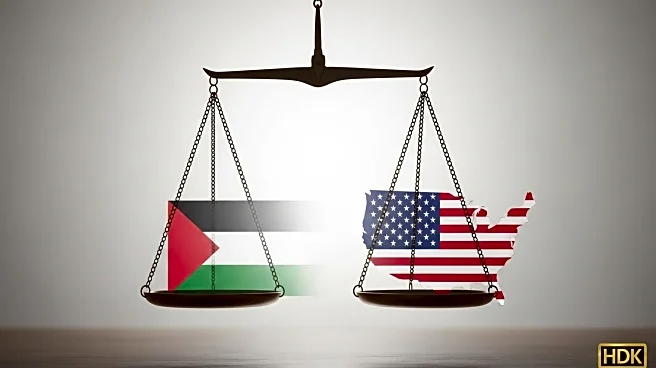What is the story about?
What's Happening?
The U.S. State Department has imposed sanctions on three Palestinian human rights organizations, citing their involvement with the International Criminal Court's investigations into Israeli nationals. The sanctions follow the ICC's issuance of arrest warrants for Israeli leaders over alleged war crimes. The Palestinian groups have condemned the sanctions as 'immoral, illegal, and undemocratic.' This development is part of broader geopolitical tensions involving U.S. foreign policy in the Middle East.
Why It's Important?
The sanctions reflect the U.S. government's stance on international legal actions against Israel, potentially affecting diplomatic relations and international perceptions of U.S. foreign policy. The move may influence ongoing debates about human rights and international law, particularly in conflict zones. It also highlights the complex dynamics between U.S. foreign policy and international legal institutions, with implications for global human rights advocacy.
What's Next?
The sanctions may lead to increased tensions between the U.S. and Palestinian groups, potentially affecting peace efforts in the region. The international community may respond with criticism or support, influencing diplomatic relations. The situation could evolve as legal and political stakeholders assess the implications of the U.S. actions.
Beyond the Headlines
The sanctions raise questions about the role of international law in conflict resolution and the balance between national interests and global human rights standards. The U.S. decision may impact future interactions with international legal bodies and influence global perceptions of U.S. commitment to human rights.
















